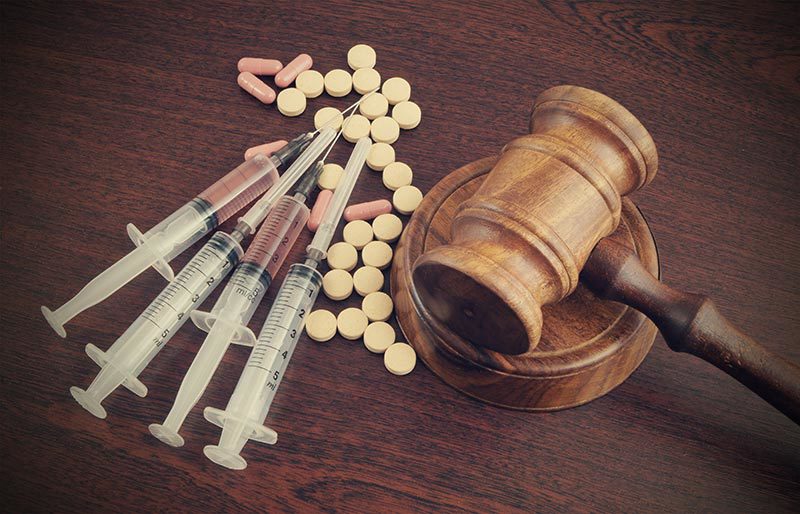Drug crimes have gotten a lot of attention in the last several decades. Every state (including Texas) has laws that prohibit the possession, manufacturing, and sale of certain controlled substances. This includes marijuana, methamphetamine, ecstasy, cocaine, and heroin. Even the federal government has laws against the possession, distribution, and manufacturing of these substances. The costs associated with drug and alcohol abuse in communities is over $110 billion a year, which often relate to the following:
- Accidental death and injuries
- Health care
- Dependency treatments
- Criminal behavior
Whether they go through the federal or state justice system, most drug cases are related to possession, manufacturing, or distribution. If a substance has been classified as “controlled,” these actions are limited or prohibited by law. Every controlled substance is placed at a certain level or “schedule” under both state and federal statutes, which will determine the laws surrounding them.
Laws Related to Drug Distribution and Trafficking
When someone has been accused of selling, delivering, or offering a controlled substance, he or she can be charged with drug distribution. Most of these crimes are brought to the surface when someone tries to sell them to an undercover officer. Trafficking, on the other hand, can refer to both the sale and distribution of a controlled substance. It has less to do with whether the substance crosses state lines, but it’s more related to the amount that was involved.
The consequences for the conviction of a drug distribution and trafficking charge can vary, and it will depend on the following:
- The type and quantity of drugs that were involved.
- The location of the defendant when he or she was apprehended.
- The defendant’s criminal history.
The sentence for drug distribution and trafficking can be anywhere from three years to life in prison along with a hefty fine, but the penalty for trafficking will be much more severe.
Manufacturing and Possession Laws for Controlled Substances
Both the federal and state governments have laws that can charge people for playing any part in the cultivation or manufacturing of a controlled substance. Cultivation usually involves the growth, possession, or production of any naturally occurring elements that can be used to manufacture an illegal drug, which can include both seeds and plants related to cannabis products. A person can also be charged for manufacturing controlled substances through various chemical processes, which is the case for LSD, cocaine, and meth amphetamines.
Possession is the most common type of drug charge, especially if the arrest was made at the state or local level. For someone to be convicted of a drug possession charge, the government has to prove that the accused had the knowledge and intent to possess a controlled substance without a prescription. They must show that the amount in his or her possession is for personal use or for sale.
If the accused doesn’t have the drugs in his or her possession but has access to them, it can be classified as constructive possession. This person can still be charged, because he or she had access to and control over the substance where it was initially found. And unlike DWI laws, the government doesn’t have to prove that you were using it to charge you. Drug possession can also be related to any paraphernalia that may be used for consuming drugs (which can include syringes, pipes, or scales). You can be charged with a misdemeanor or even a felony if you have been caught in possession of any of these devices.
The charges for possession are usually not as serious if the person being accused wasn’t planning to distribute, but the real difference isn’t on the person’s actual intent but on the amount that was found in his or her possession. Smaller amounts are usually classified as misdemeanors, while larger quantities can be used as a basis for felony possession with the intent to distribute. Many states will allow first-time offenders to be charged with simple possession, even if he or she has been caught with a large amount.
This provision will allow them to keep their record clean if they plead guilty, as long as they go through a prescribed program for substance abuse, and don’t get charged with any more offenses. Once the diversionary period has been completed (usually in 18 months), the guilty plea is thrown out and the case is dismissed. That way, the person being accused can claim that he or she has never been convicted of a crime.
For more information about the laws related to the possession, manufacturing, and distribution of a controlled substance, get in touch with someone at Gale Law Group today!
Check out our criminal defense page for more.

